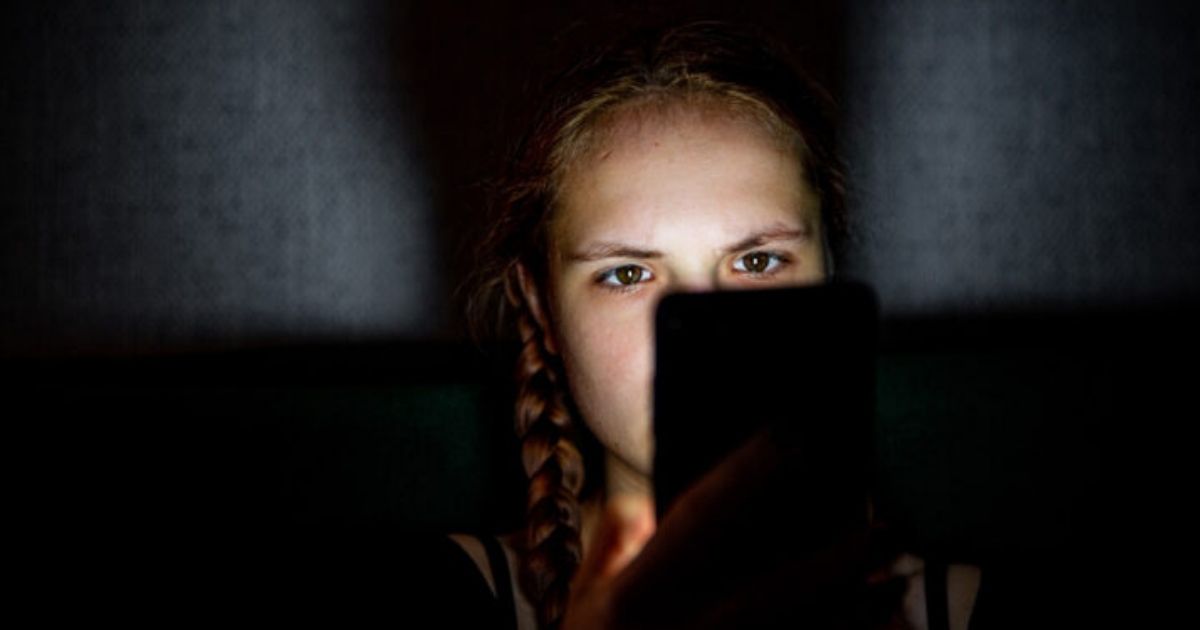In an era where technology permeates every aspect of our lives, a new study published in the “Annals of Human and Social Sciences” has unveiled a concerning relationship between excessive screen time and the onset of psychological distress, along with symptoms associated with borderline personality disorder.
As our digital engagement soars to unprecedented levels, it becomes increasingly crucial to understand the potential drawbacks of this screen addiction. While previous research has explored the effects of excessive screen time, it primarily focused on children and adolescents, leaving a significant knowledge gap regarding its impact on adults.
This study aims to bridge that gap by delving into how hours spent glued to screens might affect the mental well-being of adults.
In today’s fast-paced world, screen-based technologies have become an integral part of our daily existence. From binge-watching television series to endlessly scrolling through social media feeds, our digital engagement has reached astonishing levels.
However, amidst this digital revolution, an essential question arises: what are the potential consequences of this screen addiction on our mental health?
This pressing question served as the driving force behind a comprehensive study undertaken by clinical psychologist Adeena Ahmed, who is affiliated with the Lifeline Rehabilitation Center in Islamabad and recently completed her studies at Riphah International University.
While existing research had touched upon the impact of excessive screen time, it predominantly centered on children and adolescents. The dearth of knowledge regarding the effects on adults prompted this investigation, aiming to shed light on how prolonged screen exposure could influence the mental well-being of grown individuals.
Adeena Ahmed, the study’s author, explained the motivation behind the research, stating, “The growing interest and use of screen-based technologies throughout the world made me think about its pros and cons.
As I read previously published articles related to screen-time addiction, I realized that very little importance has been given to this topic.” This realization underscores the urgency of understanding the potential repercussions of excessive screen time among adults, a demographic that increasingly relies on technology for work, leisure, and communication.
Linking Screen Time and Psychological Distress:
The study’s findings reveal a noteworthy correlation between the amount of time adults spend in front of screens and their psychological well-being. As screen time escalates, so does the likelihood of experiencing psychological distress.
This distress encompasses a range of emotional and mental challenges, including heightened levels of stress, anxiety, and a general sense of unease. These findings are particularly relevant in the context of today’s world, where many adults work remotely and often rely on screens for both professional and personal purposes.
In addition to psychological distress, the research also uncovers a connection between excessive screen time and the manifestation of symptoms associated with borderline personality disorder. This finding underscores the severity of the issue, as borderline personality disorder is characterized by unstable mood, impulsive behavior, and intense, often tumultuous relationships.
Understanding that such traits may emerge in association with screen addiction underscores the importance of addressing this problem and seeking effective solutions.
These revelations raise important questions about the potential dangers of screen addiction among adults. As our reliance on digital devices continues to grow, it is essential to recognize the adverse effects it can have on our mental well-being.
Prolonged screen exposure may lead to a range of mental health issues, from heightened anxiety and stress to more severe conditions like borderline personality traits.
The study’s outcomes emphasize the critical need for greater awareness of screen addiction and its consequences among adults. In a world where technology plays an ever-expanding role in our daily lives, individuals must be equipped with the knowledge to make informed choices about their digital engagement.
Additionally, this research highlights the urgency of developing effective strategies and interventions to mitigate the negative impact of excessive screen time on mental health.
In conclusion, this groundbreaking study underscores the profound relationship between excessive screen time and the psychological distress experienced by adults.
Moreover, the emergence of borderline personality traits in association with screen addiction emphasizes the need for heightened awareness and action in addressing this issue.
As screens become an integral part of our lives, understanding the potential hazards of screen addiction is essential for safeguarding the mental well-being of individuals in our increasingly digital world.


























